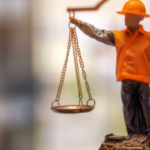Tag: freedom of speech and expression
July 9, 2025
Technology, Media and Telecom
Technology, Media and Telecom
Defining the Lines of Sub Judice in the Digital Age: Th...
In the case of Wikimedia Foundation Inc. v. ANI Media Private Limited and Ors.[1], the Supreme Court of India (“the Supreme Court“) struck down an order passed by the Division Bench of the High Court of Delhi (“the High Court“) that directed Wikimedia Foundation Inc....
August 25, 2021
Technology, Media and Telecom
Technology, Media and Telecom
Freedom of Speech and Expression vs. Content Regulation...
The Government of India, in February 2021, introduced the Information Technology (Intermediary Guidelines and Digital Media Ethics Code) Rules, 2021 (“Rules”) under the Information Technology Act, 2000 (“IT Act”), to regulate intermediaries, publishers and individual creators of news and current affairs content and online curated content. ......
May 19, 2021
Corporate Law | General Corporate Advisory
Corporate Law | General Corporate Advisory
The Supreme Court Rules on the Quarrel Over Oral Remark...
The Supreme Court has recently, in the case of The Chief Election Commissioner of India Vs. M.R Vijaybhaskar & Ors. ("Judgment"), reiterated the inalienable right of the media to report oral remarks of judges during the course of any hearing. A bench, led by Justice DY Chandrachud, comprehensively tackled this precarious question which had found its way to the Apex Court. ......
May 18, 2020
Technology, Media and Telecom
Technology, Media and Telecom
Hasmukh Gets the Last Laugh as Delhi High Court Dismiss...
As a general rule, it is frowned upon to bring disrepute to a person. That general principle is integral enough for the law to be concerned with it. The Indian Penal Code (“Code“) defines defamation as “making or publishing an imputation concerning any person, intending to harm, or knowing or having reason that such imputation will harm, the reputation of such person....
March 30, 2020
Intellectual Property | Trademark
Intellectual Property | Trademark
Social Media Influencer’s Continuing Battle for Freedom...
On February 14, 2020, a Division Bench of the High Court of Bombay lifted an injunction granted to Marico Limited and permitted a social media influencer to post a video reviewing a Marico product, subject to few amendments in the video....
January 21, 2020
Intellectual Property | Trademark
Intellectual Property | Trademark
Social media influencers, freedom of speech and tradema...
In today’s hyper-connected world, social media influencing is one of the most impactful and effective ways of marketing and advertising. But while many of us are familiar with the hashtag culture and the drill used by social media influencers – ‘like’, ‘share’, ‘comment’ and ‘subscribe’, we do not necessarily understand who an influencer actually is....
March 20, 2019
Technology, Media and Telecom
Technology, Media and Telecom
Balancing Defamation and Free Speech Notes for the publ...
In what has been termed a “defamation blitz”, an Indian corporate house has filed at least 28 defamation suits in courts since January 2018, targetting media and publishing houses, journalists, authors and politicians. Four companies under the Reliance Group have filed these suits objecting to content and reportage published about the company’s commercial activities. This is part of a larger trend in India around defamation suits which raises many questions for publishing houses and authors.
...

















